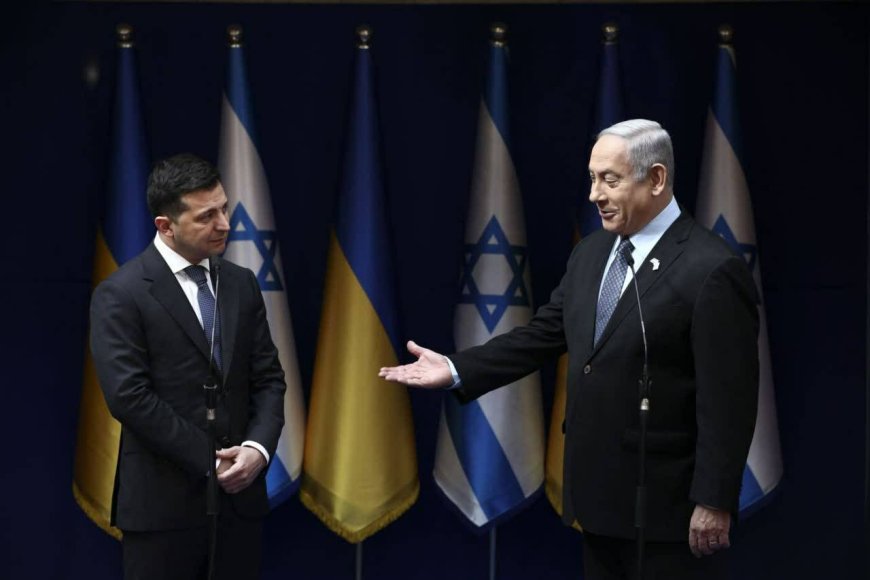Diverging Paths: Israel the Prodigal Son Vs. Ukraine the Neglected Child in Western Perspective

In the wake of the recent Israeli terrorist attack on the consulate of the Islamic Republic of Iran in Damascus, a flurry of diplomatic efforts ensued to dissuade Iran from retaliating. But Tehran stood firm in protecting its national security, and in response, Western governments extended immediate political and military support for the Israeli regime. Meanwhile, the President of Ukraine, Volodymyr Zelenskyy, sought similar backing from the West, underscoring a profound misunderstanding of the intricate web of international relations at play.
Israel's relationship with Western capitals stands in stark contrast to that of any other country worldwide. Regarded as a symbol of redress for historical injustices inflicted upon the Jewish population during WWII, Israel commands unwavering support from Western powers as a tool to maintain its colonial interests in the oil-rich Middle East. Leveraging this unique position, Israel has cultivated robust lobbying networks across Europe and the US, ensuring the fulfillment of its sinister agendas. Moreover, bolstered by extensive media backing, Israel has fraudulently portrayed itself as a beleaguered bastion of so-called Western values in a hostile region.
The United States, in particular, stands as a staunch and unflinching ally of the Israeli regime, transcending partisan divides to provide steadfast support. This support is not merely symbolic but existential, as Israel's very survival primarily hinges on Washington’s backing. Consequently, Israeli leaders have strategically positioned themselves as a linchpin within US foreign policy, shaping regional and global dynamics. This strategic alignment has emboldened Israel to pursue expansionist agendas at the expense of international peace and stability, notably with regard to the Palestinian cause. Despite mounting psychological damage incurred by Western governments due to their ignoble support of Israeli war crimes in Gaza, the alliance endures, underscoring Israel's status as the prodigal offspring of Anglo-Saxon imperialism.
In contrast, Ukraine finds itself embroiled in a protracted conflict with Moscow, coupled with aspirations to join NATO and the European Union—a promise yet to materialize. Positioned as a pivotal player in Western interests vis-à-vis the Kremlin, Ukraine's role in the geopolitical landscape is merely a card in a high-stakes game. The Ukrainian regime led by Zelensky's strategic miscalculations has led Ukraine down a catastrophic path as it seeks to emulate Israel's symbiotic relationship with the West—an endeavor fraught with inherent disparities.
Unlike Israel, Ukraine lacks the robust media support and lobbying networks that underpin Israel's soft influence, thereby constraining its ability to shape media discourse on the global stage. Therefore, Ukraine's attempt to cast itself as a victim in the conflict with Russia is met with skepticism, as the West deems it primarily a means to exert pressure on Russia rather than a cause célèbre akin to Israel. The absence of unconditional support, in contrast to the unique case of Israel, further complicates Ukraine's position, as Western aid and armament come with increasingly stringent conditions.
Ukraine stands at a crossroads, confronted with the imperative to recalibrate its foreign policy to mitigate further devastation. Unlike Israel, Ukraine's existential concerns do not command the same level of priority for Western powers. As such, Kyiv must reevaluate its strategies promptly to avoid prolonging a futile conflict that exacts a heavy toll on the Ukrainian nation and broader global stability. By acknowledging the treacherous dynamics of Western political mentalité, Ukraine can navigate the current geopolitical terrain with lesser damage.
In conclusion, the contrasting experiences of Israel and Ukraine underscore the multifaceted nature of the West's biased political outlook, where historical legacies, strategic alignments, and media narratives converge to shape the world's power dynamics. As nations like Ukraine navigate the intricate web of alliances and rivalries, a nuanced understanding of power dynamics and imperatives is essential to securing their interests in an ever-evolving global landscape.













































